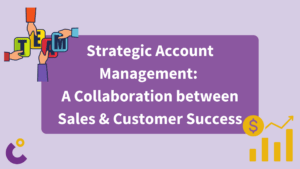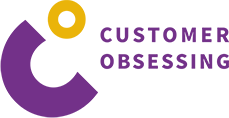
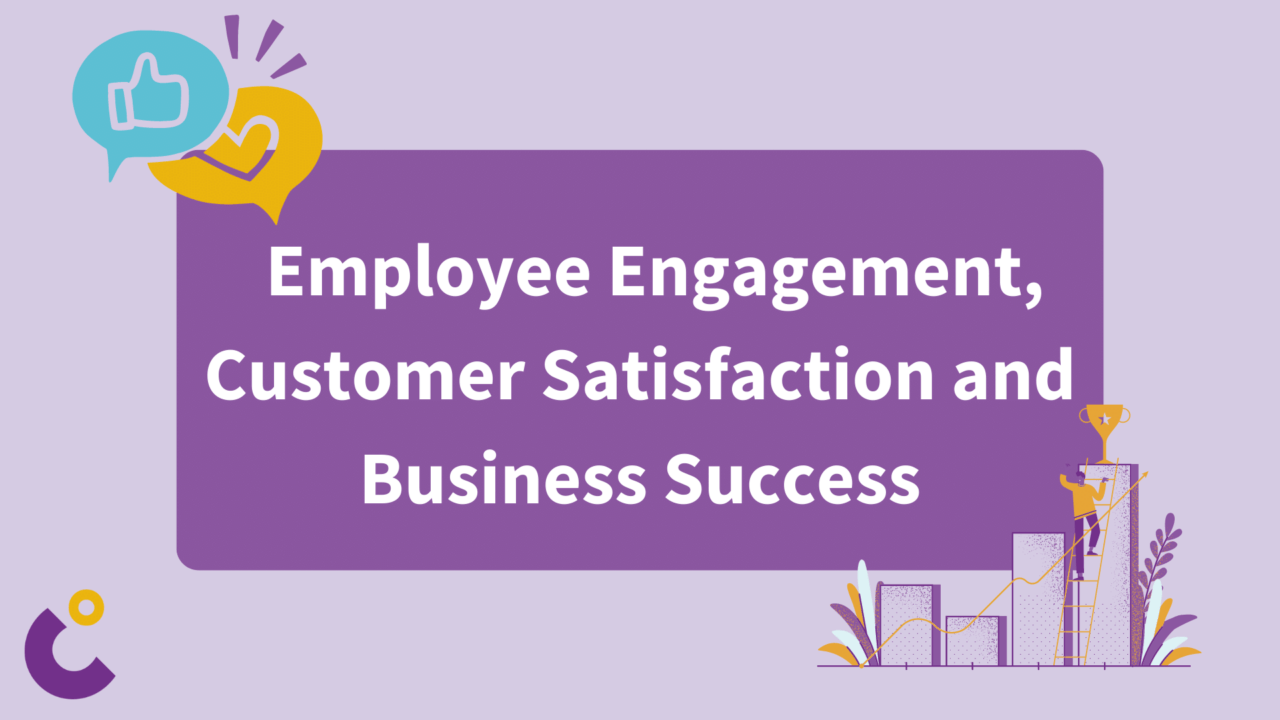
The Crucial Link Between Employee Engagement, Customer Satisfaction and Business Success
Employee engagement and customer satisfaction may appear as separate entities, but they are more interconnected than meets the eye. Especially in today’s macro-economic environment and the related labor shortage, fostering a positive relationship between engaged employees and satisfied customers is vital for achieving long-term success. In this blog post, we delve into the undeniable link between employee engagement, customer satisfaction, and your overall business performance. Supported by key performance indicators and credible research findings, we want to explore how engaged employees serve as catalysts for customer loyalty and revenue growth.
The Effect of Employee Engagement on Customer Satisfaction
Satisfied and loyal employees are considered a prerequisite for customer satisfaction and loyalty. Employee engagement refers to the emotional commitment and level of dedication that employees have toward their work, your organization, and its goals. It goes beyond mere job satisfaction. It involves the enthusiasm, motivation, and passion that employees bring to their roles. Engaged employees show greater commitment and significantly promote customer satisfaction through their performance or customer-related behaviors. Gallup showed this impressively in their meta research on the relationship between engagement at work and organization outcomes. This positive correlation creates a ripple effect, as satisfied customers become loyal advocates for the company. This in turn drives higher customer retention rates and ultimately increases sales and financial results. This shows the importance of investing in employee experience not only with regard to employee behavior, but also to customer behavior and thus ultimately to corporate success.
Investing in Employee Engagement pays off
- According to Forbes, every 5-point improvement in employee engagement makes the customer satisfaction increase by 1.3%, which leads to revenue increase of 0.5%
- According to Gallup, Organizations with highly engagement employees experienced 147% higher earnings per share
- Moreover Gallup shows, organizations with high employee engagement scores experience 21% higher productivity and 22% higher profitability
Engaged Employees as Brand Ambassadors
Engaged employees embody the values and vision of an organization, serving as brand ambassadors both within and outside the workplace. Their enthusiasm and commitment to their roles create a positive impression on customers, fostering loyalty and repeat business.
Key Performance Indicators (KPIs) Demonstrating the Impact
- High Employee Experience doubles your Net Promoter Score (NPS): NPS measures customer loyalty and advocacy by gauging the likelihood of customers recommending a company to others. Engaged employees create exceptional experiences, resulting in higher NPS scores and increased customer referrals.
- 20% increase in Customer Satisfaction Score (CSAT): CSAT quantifies the level of customer satisfaction with a product, service, or interaction. Engaged employees, driven by the passion for their work consistently deliver exceptional customer experiences, leading to higher CSAT scores. Disengaged employees on the other hand are often responsible for decreasing it up to 15%.
>> Find out more about NPS, CSAT and CES as feedback metrics in our recent blog post
The Role of Leadership in Driving Employee Engagement, Customer Satisfaction and Success
Effective leadership plays a pivotal role in fostering employee engagement and consequently customer satisfaction. When leaders prioritize and invest in their employees’ development, well-being, and recognition, they create a culture of engagement. This in turn permeates throughout the organization, positively impacting the customer experience.
Just two examples how the leadership focus impacts employee engagement:
- Lead with empathy – 76% of people who experienced empathy from their leaders reported they were engaged, compared to only 32% who experienced less empathy.
- Focus on strengths – Managers who focus on their employees’ strengths can reduce active disengagement and double the number of actively engaged team members.
How to focus on employee engagement and inspire them
Direct and indirect effects of employee experience illustrate the relevance of internal relationship management. Not only is that true with regard to employee behavior, but also to customer behavior and thus ultimately to corporate success. That’s why the employee relationship is essential to the company’s success and an important aspect of establishing customer obsession. According to Bain & Company, organizations should focus far less on providing better pay and benefits. Instead they should turn their attention to improving the intrinsic value of work itself. It is key to not only satisfy your employees but also engage and inspire them. If you do so, you will discover that purposeful work is the new secret weapon in winning the war for talent.
Here are a few ways to improve employee engagement:
- Foster a positive work culture that prioritizes employee well-being and work-life balance.
- Conduct regular employee experience & employee engagement surveys to collect feedback and improve constantly
- Provide employees with growth opportunities and invest in their professional development.
- Train your leaders and hold them accountable for their employees engagement
- Encourage open communication and feedback to foster a sense of belonging and ownership among employees.
- Recognize and reward employee achievements to boost morale and motivation.
Long story short… Employee Engagement is the Foundation of Customer Obsession
The interdependence between employee engagement, customer satisfaction, and business success cannot be overstated. Engaged employees serve as catalysts for exceptional customer experiences, leading to increased loyalty, positive word-of-mouth, and revenue growth. If you don’t have that level of engagement from your employees, your customers will never feel it. Moreover high engagement rates will make you shine as an employer, which helps keep your existing team and attract new talent.
We are here to help foster a positive work culture that provides your team with growth opportunities and opens communication and feedback channels. With our employee engagement programs, we recognize your employees and make them feel rewarded and motivated. So, let’s make employee engagement a top priority!
This might also interest you


Beyond Internal Walls: Unlocking the Power of External Customer Journey Mapping
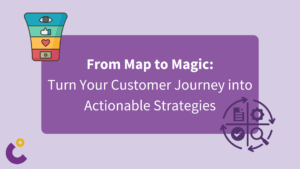
From Map to Magic: Turn Your Customer Journey into Actionable Strategies

Decode Your Customer Journey: A Step-by-Step Guide to Mapping Success

Beyond the Score: Transforming Net Promoter into a Growth Engine – Net Promoter System
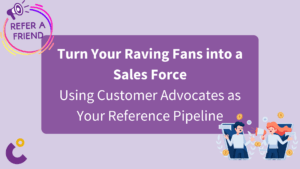
Turn Your Raving Fans into a Sales Force: Using Customer Advocates as Your Reference Pipeline
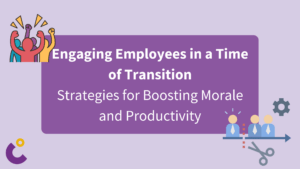
Engaging Employees in a Time of Transition: Strategies for Boosting Morale and Productivity
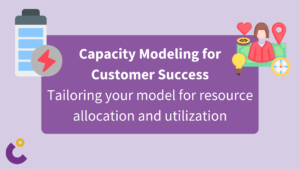
Capacity Modeling for Customer Success

Data Driven Customer Success
